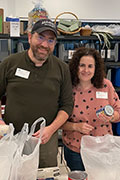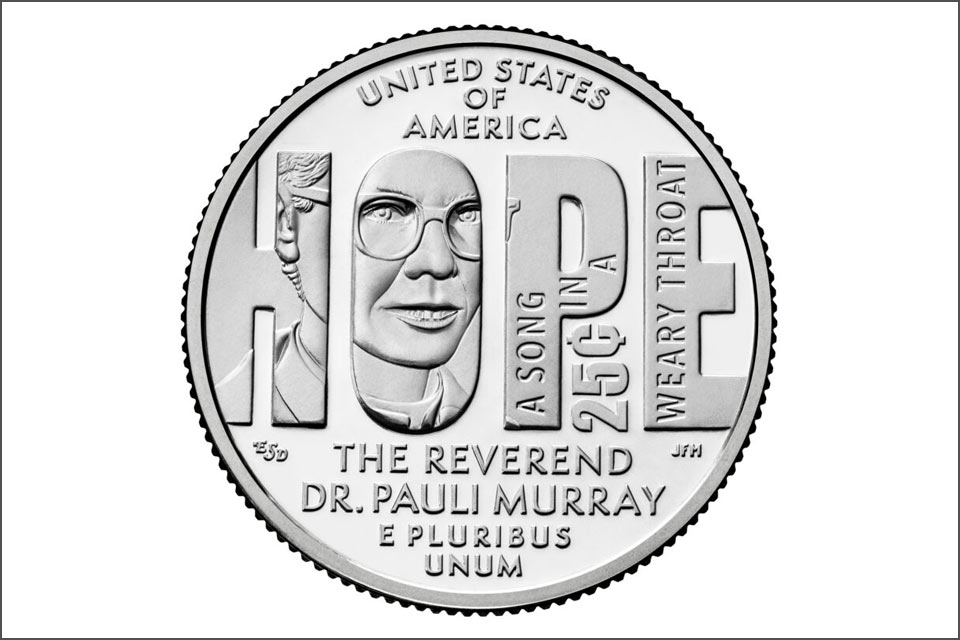Igniting Change and Inspiring Generations: The Trailblazing Legacy of Pauli Murray
Seventeen years before the Woolworth lunch counter sit-ins, Pauli Murray helped organize a sit-in that desegregated a restaurant in Washington, DC.

Photo Credit: Robert D. Farber University Archives and Special Collections
Fifteen years before Rosa Parks refused to give up her bus seat, Pauli Murray was arrested when she wouldn’t move to the back of a Durham, North Carolina, bus.
Ten years before Brown vs. the Board of Education, Pauli Murray advocated a legal argument that “separate but equal” is unconstitutional.
And decades before the term “intersectionality” was coined, Pauli Murray was grappling with gender identity, sexuality and race.
While some dismissed her as a radical, Murray found acceptance at Brandeis. At a time when college students across the country were demanding the creation of Black studies programs, Brandeis hired Murray as a professor, where she taught from 1968 to 1973 and was appointed the Louis Stulberg Professor of Law and Politics.
Nina Koocher ’71, P’13, recalled in 2021 the experience of taking a seminar with Murray during her junior year.
"I still remember the light coming in through the west facing windows of the Rabb Graduate Center illuminating Dr. Murray’s face as she sat at the head of our seminar table. Dr. Murray was always dressed in a suit and frequently smoked a cigarette. She had a strong presence and a wide smile. Dr. Murray treated her students as intellectual equals and gave each of us an opportunity to explore with her issues of gender and equality in today’s society," Koocher recalled. "...At a time when these issues were not being discussed, we were exploring gender and transgender, Nature vs. Nurture and how these phenomena influence identity. Needless to say, we were way ahead of the curve. Of all the classes I took at Brandeis this was one of the most memorable."
Murray was also attracted to Brandeis because of its social justice roots and her deep friendship with former First Lady Eleanor Roosevelt, a Brandeis faculty member and Trustee.
“Pauli wanted to come to Brandeis because of what it was – because of the tradition about how it was founded,” Professor Emeritus Joyce Antler previously said. “She had a close friendship with Eleanor Roosevelt and great respect for President Morris Abrams. She fit in very well with the beginnings of American Studies. I think Larry Fuchs understood that her real-world activism and her role in the civil rights movement and feminism would be instructive for students. When she came, she was encouraged to innovate.”
“Pauli wanted to come to Brandeis because of what it was — because of the tradition about how it was founded.”
Professor Emeritus Joyce Antler
While Murray's legacy has often been overlooked over the years, her contributions are beginning to be recognized more. She has recently been the subject of popular children's books, and the subject of the 2020 documentary, "My Name is Pauli Murray."
Two alumni from the first cohort of Transitional Year Program scholars at Brandeis appeared in the documentary to share recollections of their former professor and their days on campus, including as student-activists in the Ford Hall takeover in 1969.
Reggie Sapp ’73, MA’05, G’13, and Ernest Myers, TYP’69, P’06, spoke about their first encounter with Murray, their discomfort with their professor’s preference to use the term “Negro” to describe Black people, and her trouble understanding the Ford Hall sit-in. Though she disagreed with their approach — occupying the building which housed Murray’s office — their goals were the same: to demand a more inclusive and equitable experience for Black people.
The former students added that Murray opened her home to them and, despite her brilliance, they never felt inferior in her presence. She just showed them how much more there was to learn.
“The Black students, who wanted to be like Black Panthers, thought she was a Tom, just by the way that … she didn’t like the takeover, she didn’t like the word ‘Black.’ But if that’s all they knew, they were missing the point. For any Black kid on that campus and any woman on that campus, she was walking history,” Myers said.
Her legacy on campus has continued. In 2022, Professor Karen Hansen opened her course, Writing Activists' Lives: Biography, Gender, and Society, with a unit focused on Murray.
"Not a single student in the class knew who Pauli Murray was when we began the class,” Hansen previously said. “They are fascinated by her story and amazed that she was doing this work right on campus.”

